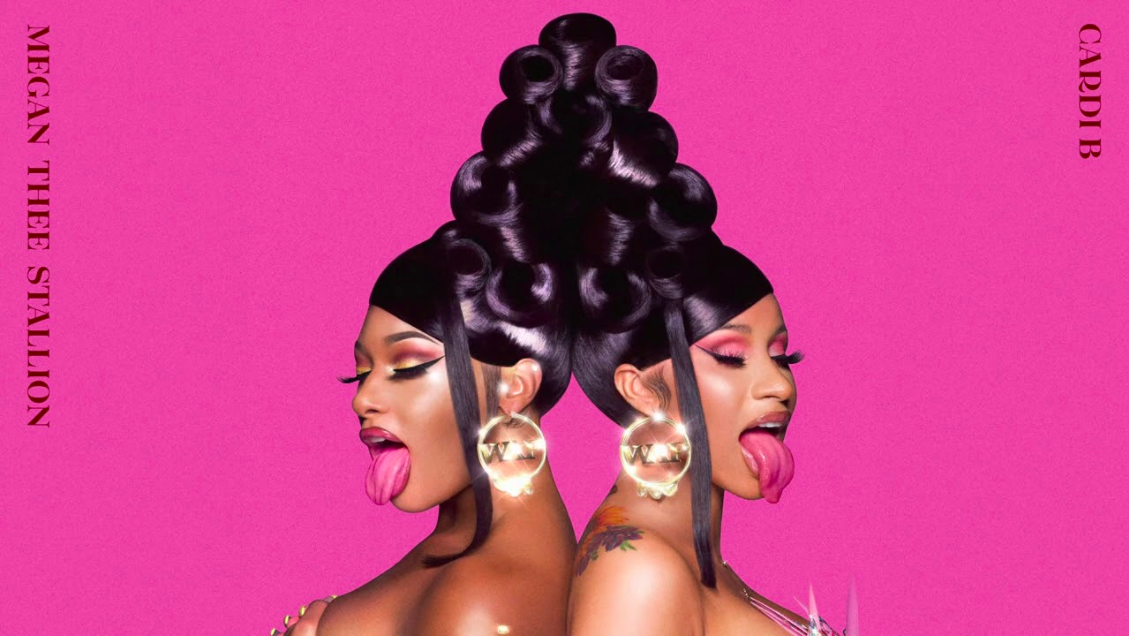The song WAP, by Cardi B and Megan Thee Stallion, has caused a lot of controversy in both the music industry and in social contexts, in the months since its release. The bold lyrics have sparked a lot of constructive conversations surrounding women’s sexuality, women’s health, and the empowerment of women. It’s also led a lot of people to question male rappers’ and singers’ intentions when their lyrics revolve around similar ideas. A quick Google search will show you some of the world’s most vulgar song lyrics regarding women. The majority of these are written and sung by men. Men are still praised for blatantly objectifying and disrespecting women in their lyrics. This ongoing issue is one of the main reasons that people love and hate WAP so much.
The lyrics of WAP discuss similar topics as these songs written and sung by men. This has led to a large debate regarding whether or not the female singers of WAP should be criticized for their lyrics and debates about the objectification of women and their bodies. People started asking why women should be praised for singing about such vulgar topics when men have sometimes received negative feedback for singing about the same things. Although this question might stem from genuine curiosity and a desire for equality, it neglects to address the fact that women and only women should be able to make decisions about women’s bodies and health.
Critics of the song have questioned the singers’ sexual health, insinuating that the women might have something medically wrong with their vaginas. However, doctors have confirmed that the conditions the singers discuss are normal and healthy. This goes to show how uninformed both men and women are on women’s bodies and sexual health. Many parents have also felt as though the singers and actresses in the music video for WAP are setting bad examples for young women. The vulgar lyrics make it understandable why an argument could be made for preventing youth from listening to the song. However, the discussion that the song initiates is a valuable one for young women and men all the same. Children don’t always receive adequate sexual education in schools, as seen in some critics’ ignorance regarding vaginas. WAP encourages conversations that are important for young people to have.
Despite all of the criticism the song has faced, the singers’ desire was to empower women in allowing them to openly talk about their sexuality. This is a whole other issue for women, one that still affects so many people in the 21st century. With very little sex education for women regarding their health, and the taboo nature of talking about women’s pleasure and sexuality, this song creates an opportunity for women to start thinking about these things. The singers are so blunt and lighthearted about the topic that it makes women feel as though they can, and should, do the same. Since the release of the song, many women around the world have begun discussing their sexuality and bodies more openly.
If men cannot listen to songs like WAP without feeling the need to over sexualize women, then it is their issue, and not the female singers’ fault. Young girls should be educated on their own bodies and sexual health, and encouraged to talk openly about it. So should young boys. Educating boys on how to respect women leads to a more equitable world for women. These conversations at a young age can also help avert rape culture and prevent men from committing acts of sexual violence against women.
The fact that, for so long, women were silenced and considered lesser than men is something generations of people (both women and men) have tried to change. Now that 2 women have voiced their opinions and chosen to talk openly about their own bodies, critics desire to silence them once again. Sure, the lyrics are provocative and shocking to some, but they are also important in allowing women to know that they deserve to be heard.
Note: This article is part of our Fall 2020 Print Edition that focuses on Women Health and Sexuality. Look across campus for a paper copy of this edition!





